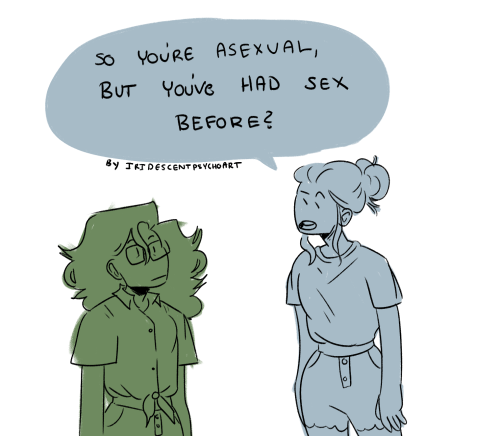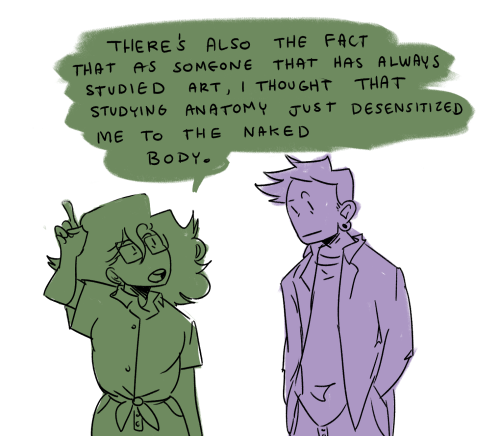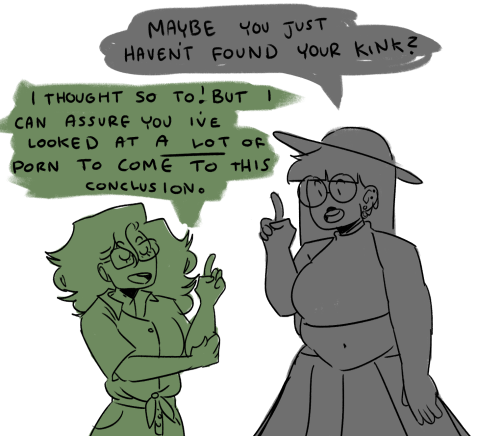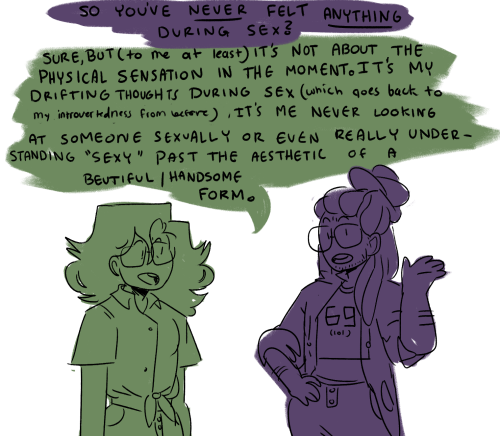I Love His Wheatfield Paintings.
I love his wheatfield paintings.





“I am wholly absorbed in the vast expanse of wheatfields, large as a sea”
More Posts from Thegreenkeeper and Others
These are cool, wouldn't mind owning a handful.
Kori

Image © @a-book-of-creatures, accessed on A Book of Creatures here
[I have not read Folk Literature of the Cuiva Indians, the book that is used as a source here, so I don’t know how accurate this take is. But. Knowing that the Cuiba were traditionally semi-nomadic hunter gatherers, the story of a kori destroying a riverside village seems to me to have a bit of a “and here’s why we don’t make permanent settlements” vibe. Which makes it all the sadder that the Columbian government has forced them villages to become agriculturalists. Which makes them prey to missionaries, and the loss of their language and traditions, and the usual things that happen when small ethnic groups are put on reservations. So this is kind of a bittersweet last monster for South America, before moving onto another continent.]
Kori CR 12 NE Magical Beast This mighty creature resembles a shaggy, green furred anteater, larger than an elephant. Its tail is broad and has fins running along it.
A kori is a physical embodiment of erosion. They live in wide, shallow rivers, deltas or swamps, and constantly erode the riverbanks to expand the water’s edges. Using their powerful claws and hurricane breath, they knock down trees to create sunny, muddy patches, where they forage on their favored prey, freshwater clams and crabs. Unfortunately, kori also despise construction of any kind, and go out of their way to swamp boats, flood villages and destroy settled communities.
In combat, a kori usually opens by creating a vast expanse of sticky entangling mud. It can move through such hazards with ease and does so, slogging through to a single victim to tear them limb from limb before moving on. If it is feeling particularly sadistic, a kori will just use control water spells to raise the water level over the heads of mired victims, trapping them to drown. If multiple enemies are able to cluster together or are capable of flying over the mud pit, it blows them away with its hurricane breath, or slams them in unison with a single sweep of its mighty tail.
Areas where a kori dwells are difficult for permanent settlements to develop in, although it will typically ignore nomadic communities. Druids of a more destructive bent consider kori to be their allies, although the kori themselves are rather more ambivalent on the idea. Although kori are mighty combatants, they are relatively vulnerable to poison—it is thought that the arrow and blowgun toxins, ordeal poisons and other pharmacological tools of jungle people have developed in part to help keep these monsters at bay.
A kori is about forty feet long, and stands ten feet high at the shoulder.
Keep reading
So true.










Note: This isn’t an insult/sassy come back to people to asking valid questions/statements (well maybe a bit sassy lol), none of it’s meant to offend people that are calmly trying to educate themselves to lgbtq+. Questions are always welcome!
Very interesting, I guess if it ain't broke don't fix it.
Something I find incredibly cool is that they’ve found neandertal bone tools made from polished rib bones, and they couldn’t figure out what they were for for the life of them.
Until, of course, they showed it to a traditional leatherworker and she took one look at it and said “Oh yeah sure that’s a leather burnisher, you use it to close the pores of leather and work oil into the hide to make it waterproof. Mine looks just the same.”
“Wait you’re still using the exact same fucking thing 50,000 years later???”
“Well, yeah. We’ve tried other things. Metal scratches up and damages the hide. Wood splinters and wears out. Bone lasts forever and gives the best polish. There are new, cheaper plastic ones, but they crack and break after a couple years. A bone polisher is nearly indestructible, and only gets better with age. The more you use a bone polisher the better it works.”
It’s just.
50,000 years. 50,000. And over that huge arc of time, we’ve been quietly using the exact same thing, unchanged, because we simply haven’t found anything better to do the job.
Love these








Jack O’Lantern Prints by RhodeMontijo
x / x x / x x / x x / x
Some of these sound really good, and I'm usually not really into murder mysteries/true crime stories, or historical fiction.


Gates of Janus by Ian Brady, Peter Sotos, Colin Wilson
“Easily one of the creepiest books ever written. Convicted Moors Murderer Ian Brady justifies serial murders and critiques his peers. This guy murdered five children! A valuable document of narcissistic psychopathology.” - Chan

The Alienist by Caleb Carr
“If The Silence of the Lambs took a trip in the wayback machine, this might be the result. Historical fiction with a true crime feel, this atmospheric novel will appeal to fans of both.” - Tove

Starvation Heights by Gregg Olsen
“A fascinating turn-of-the-century story of medical malpractice and murder. If you liked The Alienist, you’ll find Starvation Heights all the more gripping because this story is true.” - Michael Connelly

People Who Eat Darkness by Richard Lloyd Parry
“Parry, as Asia chief of the Times of London, is uniquely placed to shed light on the Japanese phenomenon of the hostess club and the serial rapes and murders of young western women by wealthy, difficult to catch sexual deviants.” - Chan

The Man from the Train by Bill James, Rachel McCarthy James
“Creepy, cozy, brilliant, and sincere, The Man From the Train solves the century-old slaying of families across America by a train-hopping, axe-wielding deviant. This is unputdownable!” - McKenzie W.

See What I Have Done by Sarah Schmidt
“Sprinkled with hatchet misadventures, potential poisonings and odd fascinations with pears and fingernail clippings, Schmidt’s storytelling is mind-blowingly atmospheric and unsettling.” - Shelf Awareness

Small Sacrifices by Ann Rule
“If you were of TV-watching age in the 80s, you probably remember Diane Downs. Hers was one of the most bizarre, unsettling, and talked about trials in Oregon history, and Ann Rule’s account of it is riveting stuff.” - Tove

I Will Find You by Joe Kenda
If you liked Homicide Hunter, then try I Will Find You by Detective Lt. Joe Kenda.

The Most Dangerous Animal of All by Gary L. Stewart and Susan Mustafa
“Stewart and Mustafa straight-up solved the Zodiac Murders.” - Chan

Whoever Fights Monsters by Robert K Ressler
If you liked the Netflix Series Mindhunter, then try Whoever Fights Monsters by Robert K. Ressler (the inspiration for Agent Bill Tench).

The Wicked Boy by Kate Summerscale
“A fascinating and creepy report of turn-of-the-century London and the crime that petrified its residents in the summer of 1895.”

Lost Girls by Robert Kolker
“A haunting and powerful crime story that gives voice to those who can no longer be heard. It is a story that you will not be able to forget.” - David Grann

The Skeleton Crew by Deborah Halber
“Readers are brought the real-life cases of missing persons, the unidentified dead, and the network of people that gives them their names… proving once again what I said at the conclusion of every episode of America’s Most Wanted: ‘One person can make a difference.’” - John Walsh, host of America’s Most Wanted

The Poisoner’s Handbook by Deborah Blum
"New York City’s Jazz Age bubbled under the surface with sadistic criminals who went day-to-day undetected. With the advent of the Periodic Table, our notions of criminal investigations were forever changed. This book does an excellent job taking you through the true story of forensic science and toxicology, and its experimental origins in solving the unsolvable.”

Death’s Acre by William Bass and Jon Jefferson
“There’s probably something wrong with me, but I thoroughly enjoyed it.” - Mary Roach

The Run of His Life The People v O J Simpson by Jeffrey Toobin
“Everyone has an opinion about O.J. Read the very best account of his murder trial to find out how much you never knew about the Trial of the Century.”

Forensics by Val McDermid
If you liked shows like CSI, Forensic Files, Bones, and NCIS, then try Forensics by Val McDermid.

Seductive Poison by Deborah Layton
“A thrilling and devastating reflection of one woman’s life spent in a terrifying cult, leading up to her narrow escape and attempts to warn the public about the impending dangers that loomed in the near future…”

Silence Of The Lambs by Thomas Harris
“Clarice Starling is a badass, and this masterfully crafted, tense, and disturbing novel is the very definition of suspense.” - Tove

Mindhunter by John E Douglas, Mark Olshaker
If you liked the Netflix series Mindhunter, then try the book that inspired it! Mindhunter by John Douglas and Mark Olshaker.

The Crime of the Century by Dennis L Breo, William J Martin
“In 1966 Richard Speck broke into a townhouse in Chicago and murdered eight young nurses in a sexual rampage. Includes account of his bizarre and chilling videotaped confession.” - Chan

The Red Parts: Autobiography of a Trial by Maggie Nelson
“THIS is one of my favorite books of all time. Poet, critic, and creative writer Maggie Nelson feels a connection to her aunt Jane, whom she never met. Jane’s unsolved murder is reopened for investigation 50 years later due to new DNA evidence. Nelson documents the trial through its confounding twists and turns, all the while begging the reader to reflect on larger implications of sexism, media and violence in our society.”

I’ll Be Gone in the Dark by Michelle McNamara
“A gripping, keep-you-up-all-night, real-life whodunit; a testament to McNamara’s inimitable resolve; and an extraordinary parting gift from a talented writer.” - Tove

My Friend Dahmer by Derf Backderf
“Before Jeffrey Dahmer was a serial murderer who kept human heads in his freezer he was a weird, sad kid. Graphic novelist Backderf, a former classmate of Dahmer, gifts us a portrait of the cannibal as a young man.” - Chan

Powell’s Grim Reader Patch

Cat Who Could Read Backwards by Lilian Jackson Braun
If you liked the My Favorite Murder podcast, then try Lilian Jackson Braun’s The Cat Who… series, in which Siamese cats Koko and Yum Yum help their owner solve murders!

My Sweet Audrina by V C Andrews
In loving memory: the My Favorite Murder book club, episode 95-episode 97.

Lady Killers by Tori Telfer
“Even grandmothers get in on the serial killing game! Tori Telfer writes about female murderers as if they’re bedtime stories, quick and irresistable.” - McKenzie W.

Killers of the Flower Moon by David Grann
“A true crime history that entertains even as it forces the reader to confront the evils of our national past and the uncomfortable parallels visible today.” - Rhianna

Stranger Beside Me by Ann Rule
“Imagine you are a budding true crime writer working at a suicide hotline to make ends meet when it gradually dawns on you that the nice, handsome guy who works next to you might be a prolific serial killer named Ted Bundy.” - Chan

The Good Nurse by Charles Graeber
“Put this one on the shelf next to Ann Rule’s classic about Ted Bundy, The Stranger Beside Me. It’s that good.” - Entertainment Weekly

Columbine by Dave Cullen
“This school shooting shocked America when it occurred almost twenty years ago. Who would have been cynical enough to guess that mass shootings would be an almost daily occurrence in 21st Century U.S.A.?” - Chan

Perfect Murder Perfect Town by Lawrence Schiller
“A thoroughly researched, detailed report that takes you moment by moment through one of the most complex, chilling investigations of all time.”

Cases That Haunt Us by John E Douglas
If you liked the Netflix series Mindhunter, then try The Cases That Haunt Us by John Douglas (the inspiration for Agent Holden Ford) & Mark Olshaker.

Psycho by Robert Bloch
“Loosely inspired by real-life monster Ed Gein (who was arrested in a town not far from Bloch as he wrote the book), Psycho is a chilling tale of one man’s, um, relationship with his mother.” - Tove

Anne Perry & the Murder of the Century by Peter Graham
“The great Peter Jackson/Kate Winslet film Heavenly Creatures is based on this true story of infatuation and matricide. The murderess, Juliet, eventually became the mystery novelist Anne Perry.” - Chan

The Grim Sleeper by Christine Pelisek
“A dark and disturbing story that reveals the failure of the police and the justice system in impoverished communities of color, The Grim Sleeper is a must-read for true crime fans who want to see how crime reporting can make a difference.” - Bustle

After the Eclipse by Sarah Perry
“When the author was 12 her single mother was murdered in their home in rural Maine. After the Eclipse is a memoir of Sarah’s exploration of not only her mother’s death, but her life. Perry brings the reader into her personal losses and triumphs during her coming of age and in turn, tells her mother’s life story with compassion and clarity. This book is impossible to put down.”

The Black Dahlia Files by Donald H Wolfe
“Of all the books written about this still unsolved crime, this one, by Donald Wolfe who had fresh access to LAPD files, comes closest to the heart of this fascinating and disturbing crime.” - Chan

The Devil in the White City by Erik Larson
“Serial killer Dr. H. H. Holmes is long dead, but Larson’s evocative storytelling had me peeking into closets and burrowing under the covers as I read, late into the night.” - Rhianna

Who Killed These Girls by Beverly Lowry
“Gripping, moving, and as good as any depiction of a murder case since In Cold Blood… This transcends the genre. Brilliant.” - Ann Patchett

In Cold Blood by Truman Capote
“Capote’s masterpiece is the standard by which every other work of true crime reportage must be judged. But did he break faith with his "friends” the killers to get his great scoop? You decide!“ - Chan

Helter Skelter by Vincent Bugliosi and Curt Gentry
"If you liked law & order procedurals, "hippie music,” and cult classics, then try Helter Skelter by Vincent Bugliosi.

The Girls by Emma Cline
“A fictional account of a young woman’s brush with a murderous cult, Cline’s The Girls is a compulsive read and a crystal clear transmission from the brain of a teenage girl.” - Tove ga
reblog this if your blog is a safe space on april fools and won’t have any jumpers, screamers, or anything scary or anxiety inducing
This is beautiful

Sue Davis studios
This is such a cool concept


Here’s how to charge your phone when it’s alive, full of guts, and you are a crab alien who lives in the sea. Scuds are amphibious, comfortable breathing on land as long as their gills stay damp, but they spend most of their time in saltwater intertidal zones. This makes human-style technology powered by heat and electricity improbable, so scuds never really developed that– instead, animal husbandry and artificial selection developed to the point that extremely sophisticated manufactured technology can be created through the surgical combination of extremely derived sedentary animals, alga, and bacteria.
So what powers a phone full of guts? The simplest form of food: sugar water with essential nutrients added. The charging cable also deals with the outgoing (mostly liquid) waste from digestion and the nitrogenous waste from the phone’s metabolic processes.
Ironically, while humans have trouble bringing our electrical technology underwater, scuds have trouble bringing their biotechnology onto land. Even with a lung attachment, biotech innards have a high risk of desiccation and temperature shock on land. For especially large or delicate pieces of technology, the lack of underwater buoyancy can cause internal distention and damage.
PATREON | STORE | Runaway to the Stars

https://aw-my-books.tumblr.com/
Me too ♥
-
 passengers-things liked this · 2 weeks ago
passengers-things liked this · 2 weeks ago -
 lanternlightseer liked this · 9 months ago
lanternlightseer liked this · 9 months ago -
 boja-hladnog-srebra liked this · 2 years ago
boja-hladnog-srebra liked this · 2 years ago -
 meelosx liked this · 2 years ago
meelosx liked this · 2 years ago -
 mo-tsvetkov reblogged this · 2 years ago
mo-tsvetkov reblogged this · 2 years ago -
 ovojeglupost reblogged this · 2 years ago
ovojeglupost reblogged this · 2 years ago -
 intensamente reblogged this · 2 years ago
intensamente reblogged this · 2 years ago -
 herestonowhere liked this · 2 years ago
herestonowhere liked this · 2 years ago -
 lemonez reblogged this · 2 years ago
lemonez reblogged this · 2 years ago -
 lemonez liked this · 2 years ago
lemonez liked this · 2 years ago -
 no--alarms reblogged this · 2 years ago
no--alarms reblogged this · 2 years ago -
 no--alarms liked this · 2 years ago
no--alarms liked this · 2 years ago -
 chevellerose reblogged this · 2 years ago
chevellerose reblogged this · 2 years ago -
 chevellerose liked this · 2 years ago
chevellerose liked this · 2 years ago -
 sleepyminyard liked this · 2 years ago
sleepyminyard liked this · 2 years ago -
 zuckergussprinzessin liked this · 2 years ago
zuckergussprinzessin liked this · 2 years ago -
 prettypangolins reblogged this · 2 years ago
prettypangolins reblogged this · 2 years ago -
 prettypangolins liked this · 2 years ago
prettypangolins liked this · 2 years ago -
 giantween reblogged this · 2 years ago
giantween reblogged this · 2 years ago -
 abadbadbrujah reblogged this · 2 years ago
abadbadbrujah reblogged this · 2 years ago -
 depengu reblogged this · 2 years ago
depengu reblogged this · 2 years ago -
 depengu liked this · 2 years ago
depengu liked this · 2 years ago -
 borntodie-1999 reblogged this · 2 years ago
borntodie-1999 reblogged this · 2 years ago -
 heyyyyvic liked this · 2 years ago
heyyyyvic liked this · 2 years ago -
 angelicalidade reblogged this · 2 years ago
angelicalidade reblogged this · 2 years ago -
 angelicalidade liked this · 2 years ago
angelicalidade liked this · 2 years ago -
 impossiblegoateeearthquake liked this · 2 years ago
impossiblegoateeearthquake liked this · 2 years ago -
 sugarhopes reblogged this · 2 years ago
sugarhopes reblogged this · 2 years ago -
 sugarhopes liked this · 2 years ago
sugarhopes liked this · 2 years ago -
 moon-rabbits liked this · 2 years ago
moon-rabbits liked this · 2 years ago -
 because-u-can reblogged this · 2 years ago
because-u-can reblogged this · 2 years ago -
 mademoiselle-is-a-fairy reblogged this · 2 years ago
mademoiselle-is-a-fairy reblogged this · 2 years ago -
 cosmostar reblogged this · 2 years ago
cosmostar reblogged this · 2 years ago -
 cosmostar liked this · 2 years ago
cosmostar liked this · 2 years ago -
 mademoiselle-is-a-fairy liked this · 2 years ago
mademoiselle-is-a-fairy liked this · 2 years ago -
 lady-d-arbanville reblogged this · 2 years ago
lady-d-arbanville reblogged this · 2 years ago -
 scorpiofeed liked this · 2 years ago
scorpiofeed liked this · 2 years ago -
 pbnaj liked this · 2 years ago
pbnaj liked this · 2 years ago -
 lady-d-arbanville liked this · 2 years ago
lady-d-arbanville liked this · 2 years ago -
 septembergold reblogged this · 2 years ago
septembergold reblogged this · 2 years ago

-Just Me [In my 30s going on eternity] (A Random Rambling Wordy Nerd and an appreciator of all forms of artistic expression) Being Me- Art, Books, Fantasy, Folklore, Literature, and the Natural World are my Jam.
249 posts